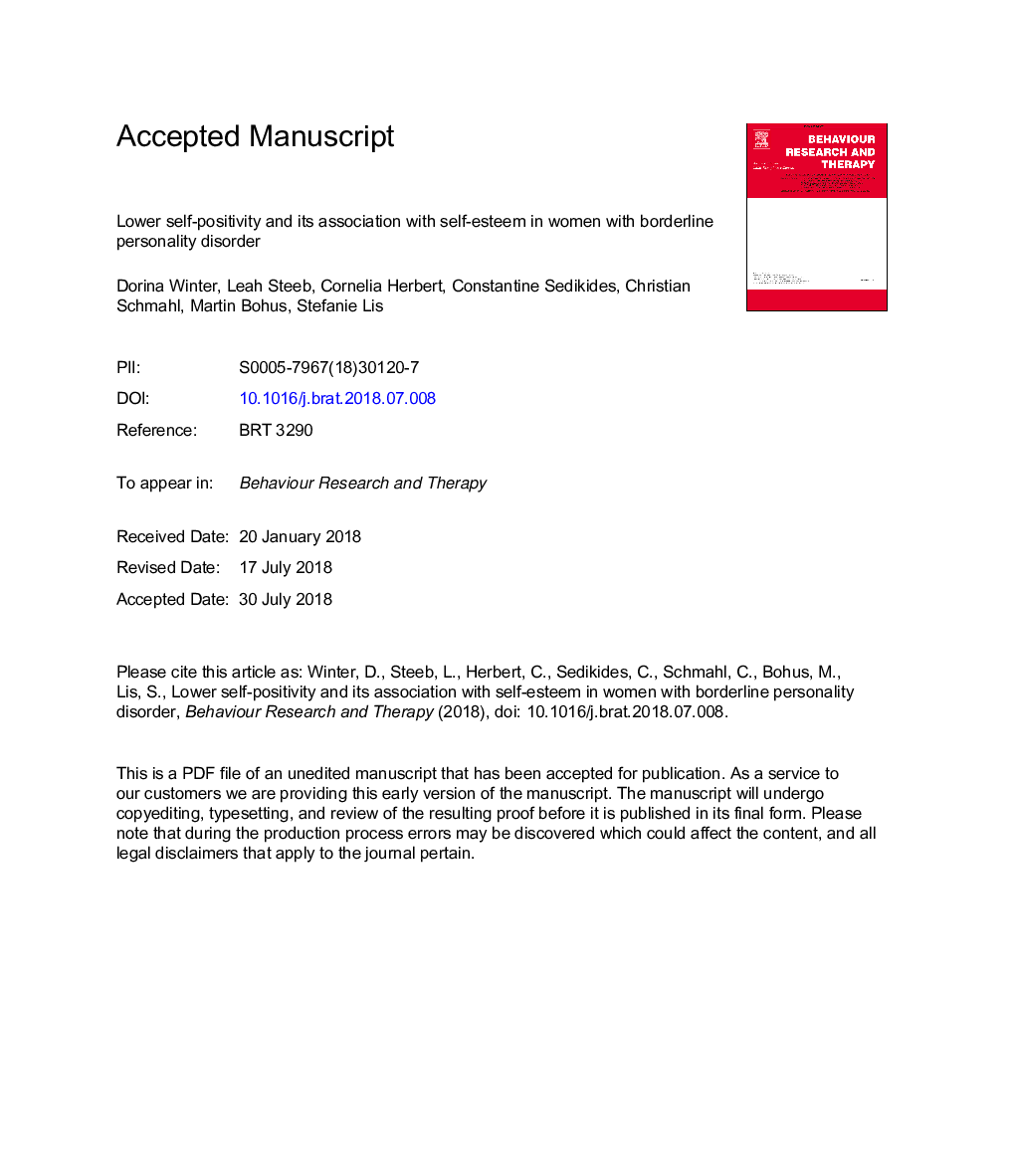| Article ID | Journal | Published Year | Pages | File Type |
|---|---|---|---|---|
| 11004453 | Behaviour Research and Therapy | 2018 | 36 Pages |
Abstract
We assessed explicit self-esteem via self-report (Rosenberg Self-Esteem Scale) and implicit self-esteem via the Initial Preference Task in women with BPD and healthy control women. We assessed self-positivity in a self-referential processing task, in which participants rated the valence of positive, neutral, and negative nouns, and later recalled them. We manipulated referential context via supraliminal or subliminal priming of self-reference, other-reference, or no reference. Explicit and implicit self-esteem were lower in the BPD group than in the healthy control group. Participants with BPD rated self-referential words less positively, when primes were presented supraliminally. Less positive and slower ratings of positive self-referential words were associated with lower explicit, but not implicit, self-esteem in the BPD group.
Keywords
Related Topics
Health Sciences
Medicine and Dentistry
Psychiatry and Mental Health
Authors
Dorina Winter, Leah Steeb, Cornelia Herbert, Constantine Sedikides, Christian Schmahl, Martin Bohus, Stefanie Lis,
